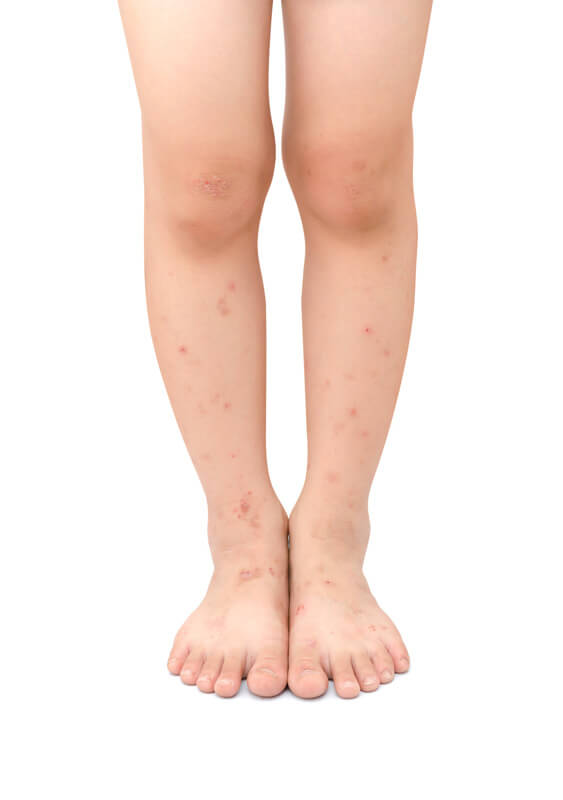
7 of the Best Essential oils to use for Bee Stings and Bug Bites
Today’s topics are bee stings and bug bites, oh my!
Note: the oils and recipes that you’ll find below are for painful but not dangerous bites. If you’re dealing with a bite from a particularly poisonous critter (black widows, snakes…) please go to the doctor. For snake bites, in particular, it is recommended that you call for medical help ASAP.
With that said, let’s start with a list of the best essential oils for the job.
Then, we’ll follow that up with some DIY recipe applications that you can use to get the most out of your oils for your bite treatment.
Lastly, we’ll cover some non-essential oil based natural remedies that you could use as well.
All right, on to the oils!
1.) Lavender Essential Oil

Lavender is one of the most popular essential oils. Most EO users have a bottle or two of lavender on hand at any given time – and for good reason.
Lavender is an analgesic, anti-inflammatory, antiseptic, antiviral, bactericide, calming, cicatrizant, fungicide, nervine, relaxing, and sedative. These properties make lavender a perfect tool to help treat any bug bites and stings.
Lavender is not only calming to the skin, but to the nerves in general. So it soothes while it heals. It also has a smell that is pleasant to us, yet dislikes by bugs.
What’s not to love!
(Buy Now | Read More about Lavender Essential Oil)
2.) Tea Tree Essential Oil
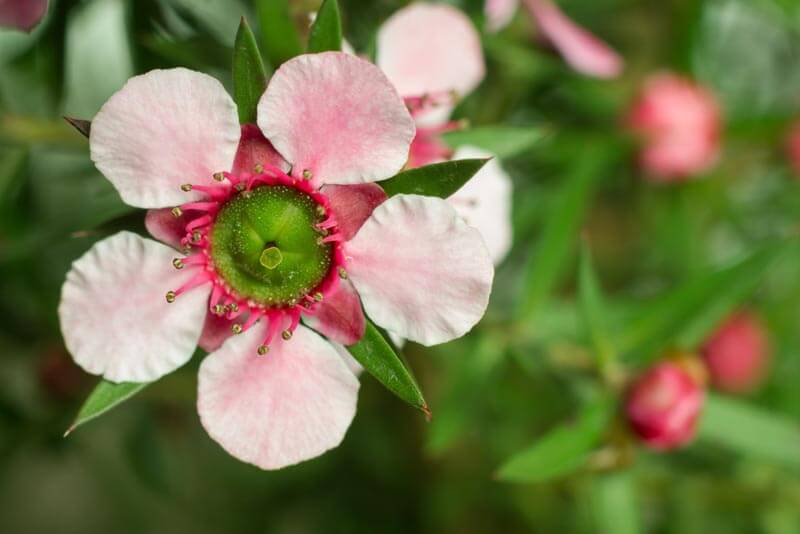
Tea tree is another staple oil that you shouldn’t be without. Tea tree cleans out wounds effectively while helping to relieve itching, stinging and inflammation.
Tea tree is antibacterial, antimicrobial, anti-fungal, antiseptic, cicatristant, expectorant, fungicide, immunostimulant, insecticide, stimulant and sudorific.
(Buy Now | Learn More about Tea Tree Essential Oil)
3.) Chamomile Essential Oil (Roman and German)

Chamomile is an excellent calming and relaxing oil. Chamomile is an analgesic, anti-inflammatory, antiseptic, antispasmodic, bactericidal, carminative, sedative, febrifuge, vulnerary, tonic.
It’s great for soothing inflammation and relieving pain associated with flea, tick and other bug complaints.
(Buy Now | Learn More about Chamomile Essential Oil)
4.) Lemon Balm (Melissa) Essential Oil
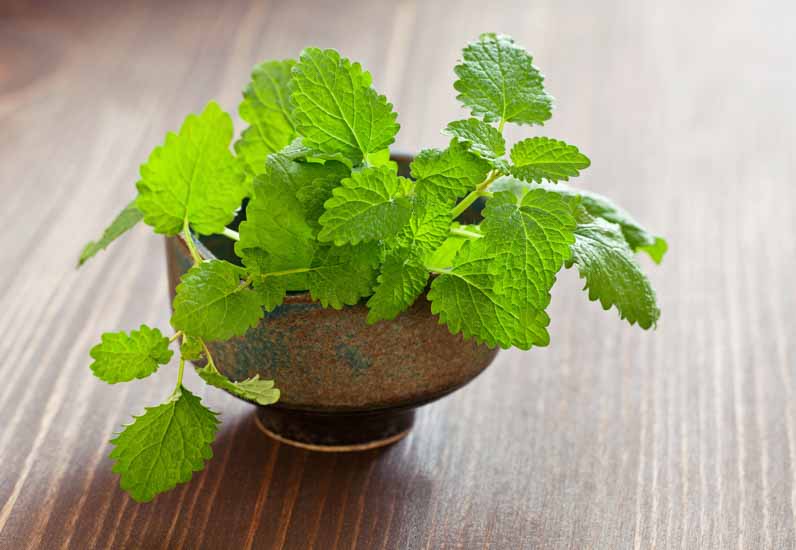
Melissa, also known as lemon balm, has a calming and uplifting effect on the body. It has fantastic antiviral and antibacterial properties which makes it an effective treatment for cuts, scrapes, bites, and stings.
Melissa oil is antidepressant, antispasmodic, antiviral, carminative, emmenagogoue, hypotensive, nervine, sedative and tonic.
Buy Melissa Essential Oil here.
5.) Basil Essential Oil

Basil has some excellent anti-inflammatory properties which helps it to reduce inflammation inside our around insect bites or stings. It also provides disinfectant qualities.
Buy Basil Essential Oil here.
6.) Thyme Essential Oil

Thyme oil helps to keep wounds, cuts, and sores clean and infection-free. Thyme oil safeguards bite and stings against infection and help to keep the wounds clean.
(Buy Here | Learn More About Thyme Essential Oil)
7.) Eucalyptus Essential Oil
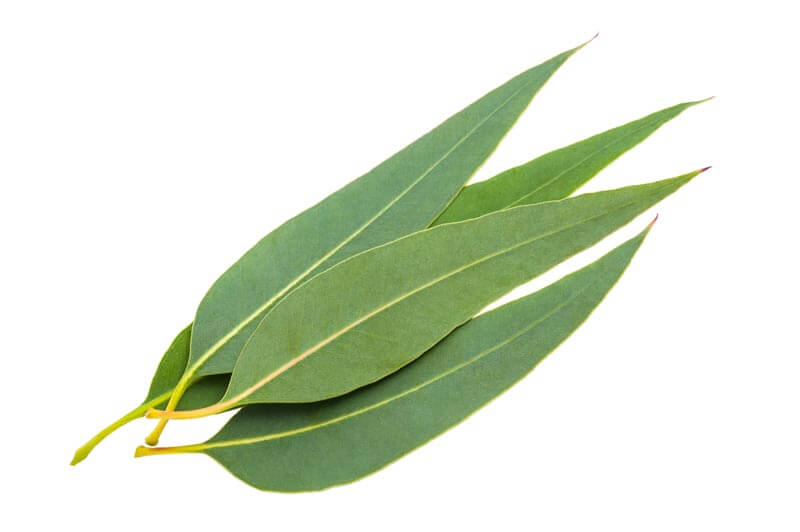
Eucalyptus contains excellent antiseptic qualities, protecting any insect bite or sting from becoming infected. It is one of the best oils at preventing and reducing infection.
Eucalyptus is an analgesic, antibacterial, anti-inflammatory, antiseptic, antispasmodic, antiviral, cicatrizant, diuretic, insecticide, vulnerary.
(Buy Here | Learn More About Eucalyptus Essential Oil)
12 Simple Essential Oil Based Applications for Bee Stings, Mosquito & Bug Bites
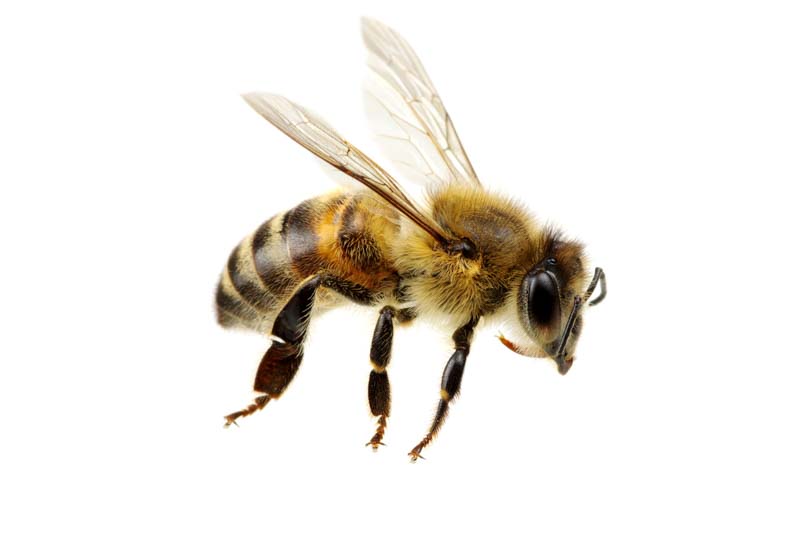
1.) Simple Cold Compress Application for Bee Stings, Hornet Stings & Ant Bites
When dealing with a bee sting your first step is to remove the stinger from your skin if it has been left behind. Use tweezers for this and try to avoid squeezing the venom sac while you are removing the stinger.
Once the stinger has been removed apply an ice-cold compress saturated in the following solution:
- 1 tsp baking soda
- 1 tbs (15ml) chamomile hydrosol or lavender hydrosol (or distilled water mixed with a few drops of chamomile or lavender essential oil)
Reapply frequently until swelling subsides.
2. DIY Bee Sting Paste
Ingredients:
- 1 tsp baking soda (to nullify the acidity of your sting)
- 1 drop Chamomile EO
- 1 drop lavender EO
- Distilled/filtered water (or lavender hydrosol)
Directions:
- In a small non-reactive bowl combine your baking soda with chamomile and lavender essential oils
- Mix well while adding just enough water/hydrosol to make a soft paste
- Dab it frequently on your bites until healed
Application:
- Before applying paste be sure to remove the stinger. You can use tweezers or the tip of a sharp (sterilized) blade to carefully scrape the stinger out of your skin. Don’t simply pull the stinger or squeeze it out to prevent more venom from releasing into your skin from the venom sac
- Apply your bee sting paste to the affected area hourly until the stinging subsides
3. Vinegar Cotton Ball Press for Wasp Stings
Ingredients:
- 1 tsp vinegar
- 5 drops lavender EO
- Cotton ball(s)
Directions:
- In a small non-reactive bowl combine your vinegar and lavender essential oil
- Soak your cotton ball in the solution dab the affected area hourly
4. Cold Compress for Wasp Stings
For wasp stings apply a cold compressed that’s been saturated with:
- Apple cider vinegar
- 2 drops of lavender EO or tea tree EO
Reapply fresh compresses until swelling subsides.
5. Neat Application For Mosquito, Fleas, Ticks other Insect Bites
Simply apply a drop or two of lavender EO or tea tree EO
Apply every hour or as required.
If there’s inflammation from the bite(s) then apply a cold compress with a few drops of lavender, chamomile or melissa oil
6. DIY Insect Bite Paste
Ingredients:
- 1 tsp baking soda
- 1 drop lavender EO
- Distilled or filtered water (or lavender hydrosol)
Directions:
- In a small non-reactive bowl combine your baking soda with lavender EO
- Mix well while adding just enough water/hydrosol to make a soft paste
- Dab it frequently on your bites until healed
7. Simple Treatment For Ticks
The only safe way to remove a tick is to grab at the base & to pull straight out — making sure you get the entire thing. Using tweezers for this is ideal. All the other methods can actually increase your risk of tick-borne illnesses. Follw up by cleaning the site with alcohol.
Once a tick has fallen out, it’s best to apply 1 drop of neat lavender to the spot every five minutes to avoid infection and reduce pain/swelling.
8. Simple Treatment for Bedbugs fleas, gnats and midges
The important thing to factor in with these kind of bites is the risk of infection.
You’ll want to be sure that you bathe the bitten areas well.
After you’ve bathed you can apply:
- A few drops of lavender or eucalyptus neat
- 3 drops of thyme diluted in cider vinegar
9. Simple Spider Bite Cotton Ball Application
Ingredients:
Directions
- In a non-reactive bowl mix together your lavender and tea tree oil in 1 tsp of vinegar
- Soak a cotton ball in the mixture and dab the affected area hourly
10. Black Widow Bites
First things first, when you get a black widow bite – head to the doctor.
While you are on your way you can apply 10 drops of lavender oil neat to the bite. Lavender is reputed to neutralize the poison of widow bites.
11. Simple Sea Urchin Sting Remedy
Before you treat your sea urchin wound with essential oils it is important that you get the spikes out. Urchin spikes are extremely brittle and will break easily. Be careful while digging them out and make sure what you are using is sterilized!
After you’ve removed the spikes and washed the area apply 1 drop of thyme essential oil neat to the wound every three hours for twelve hours.
If you have trouble getting the spikes out you can get a papaya and use the inside skin as a poultice on the area. The enzymes in papaya skin will help dissolve the spikes left in the skin and soothe the area.
To help treat the pain associated with leftover urchin spikes you can apply a combination of the following oils mixed with a carrier oil:
- 10 drops chamomile
- 10 drops lavender
- 10 drops eucalyptus
- 2 tablespoons carrier oil (argan, coconut, sesame, sweet almond, jojoba, grapeseed, macadamia)
12. Simple Neat EO Application for Jellyfish Stings
- First of all, make sure to remove any jellyfish tentacles or urchin spikes from your skin
- Next apply 1-2 drops of chamomile, tea tree or lavender oil neat
- Ice if possible
Other (Non-Essential Oil) Based Natural Remedies for Bee Stings & Bug Bites
Safetec Insect Sting Relief Wipe
Sting Relief Pads offer soothing aid from all minor irritations, including mosquito bites and bee stings. Can be used for cuts as well.
These things work REALLY well and are really handy to have in your sting/bite kit. You get 48 wipes for under $5 here so it’s a good deal.
You should get them because they provide a really simple way to treat fresh bites and stings.
Conclusion

Hopefully, the information in this post has been helpful for you.
If you have any questions, comments or recommendations of your own please lets us know in the comment section below!
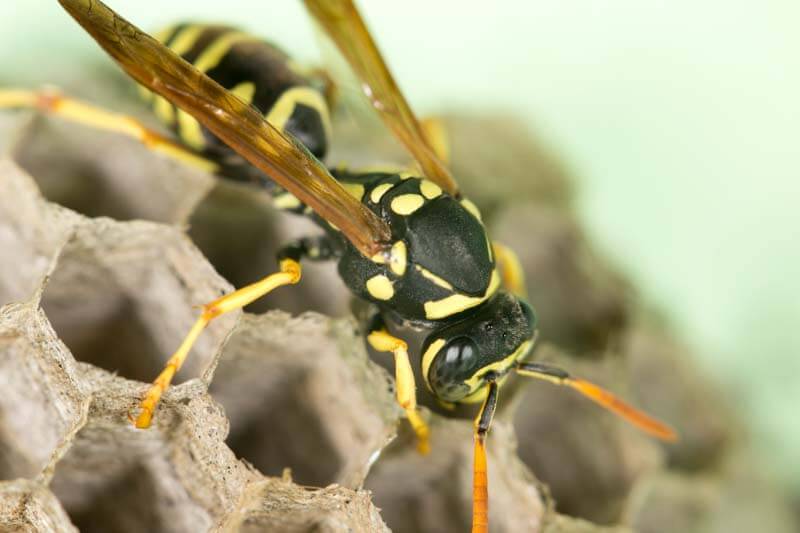

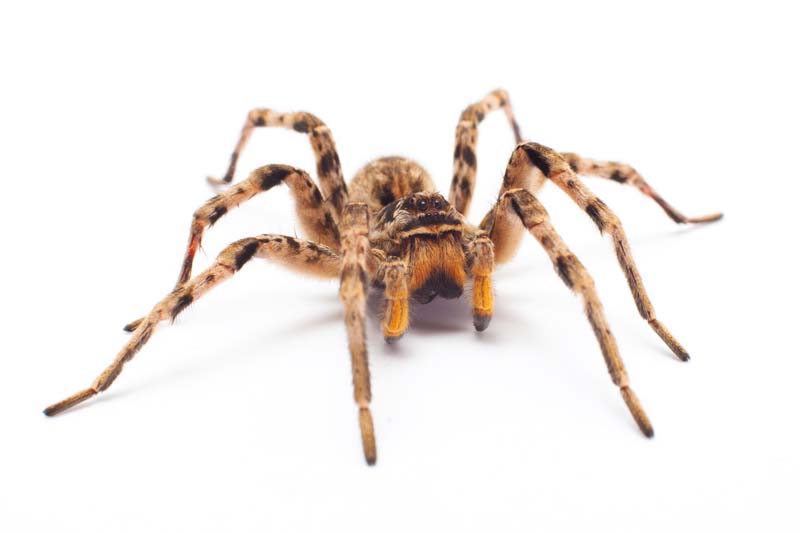
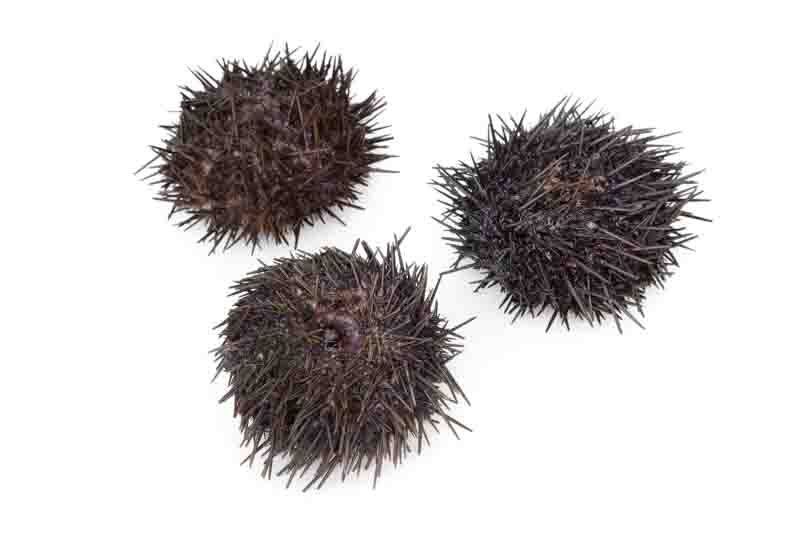
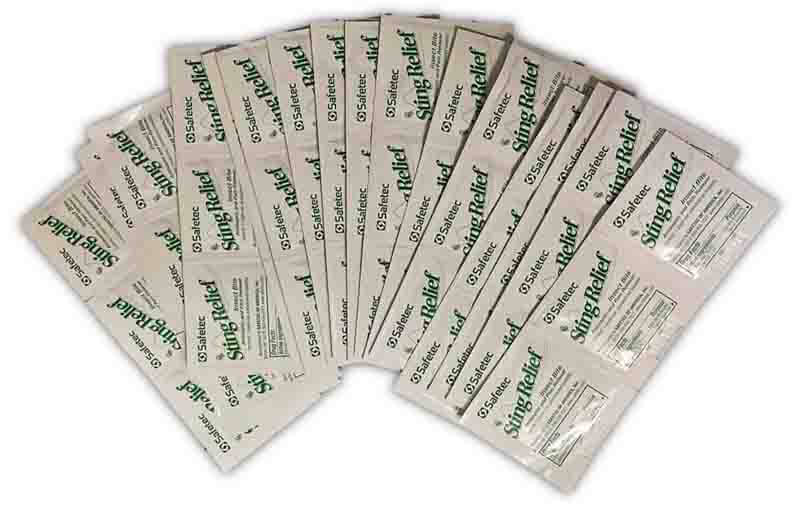


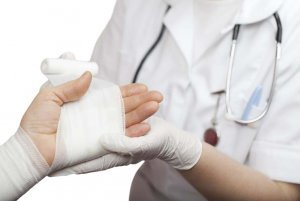








7 thoughts on “7 Potent Essential Oils for Bee Stings, Bug Bites & More”
Nice made website, Loren, and some valuable advice here about bug bite treatment.
Just let me add one point. On should not treat the tick with anything while its sucker is still inside the skin.
The reason is the increasing chance that the tick might release pathogenic germs.
Instead better use some great oil treatment for recovery after everything is out.
Hello,
I get weekly allergy shots for numerous allergies. I get a very large welt from one of the 2 shots I get.
What Oils can I use to reduce itching and swelling (welt)
Thank You
Cathy Rowe
I would suggest lavender oil for that reaction. Just realized this is an old question, so hopefully you have found relief from your reaction. But if not,here’s your answer.
Using tweezers or a tick removal gadget found at most drug stores is still the safest way to remove a tick. It is possible that using any kind of oil can agitate the tick and cause it to salivate more or regurgitate the stomach contents. This increases a person’s chances of contracting a tick disease (like Lyme.) They still need to do more research on this but it is the current thought. Better safe than sorry. Use oils for soothing bite remedies after that tick has been removed!
Something else to add:
Bentonite or Redmond clay paste works far better than baking soda in our experience.
My boyfriend got bit on his arms and hands, yesterday, from many wasps. He came home from work we washed well and also took benedryl…This morning he is itching bad and the swelling is still swollen. I put vinegar on it. I a bit later, after removing the vinegar, i put pepperment oil on it. Is that ok ? I look forward to your advise.
Yes, that sounds good Karen. Hope he’s feeling better!